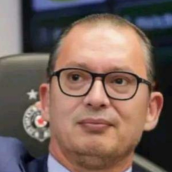Trump this!
Trump this! 68 members have voted
-
1. Ko ce biti GOPov kandidat za Precjednika USofA?
-
D Donald Dak35
-
Bus III24
-
Pejotl (Krst, Rubin)8
-
Boranija4
-
-
2. Ko ce biti Dem's kandidat za Precjednika USofA?
-
Bice krunisanje30
-
Bice bek to d fjucr vija Vermont21
-
Bice OMajli (hu, bre?)1
-
Bajden ce da zajebe sve na kraju...16
-
Please sign in or register to vote in this poll.





Create an account or sign in to comment